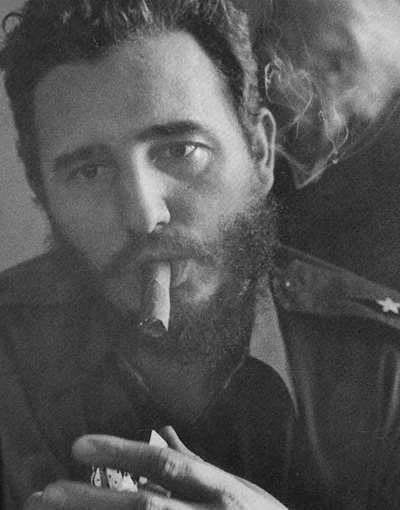"
Tax Break Used by Drug Makers Failed to Add Jobs
Two years ago, when companies received a big tax break to bring home their offshore profits, the president and Congress justified it as a one-time tax amnesty that would create American jobs
Drug makers were the biggest beneficiaries of the amnesty program, repatriating about $100 billion in foreign profits and paying only minimal taxes. But the companies did not create many jobs in return. Instead, since 2005 the American drug industry has laid off tens of thousands of workers in this country.
And now drug companies are once again using complex strategies, many of them demonstrably legal, to shelter billions of dollars in profits in international tax havens, according to their financial statements and independent tax experts.
In one popular accounting move, companies declare their foreign markets as far more profitable than their American businesses — even though drug prices are typically higher in the United States than anywhere else in the world.
Drug makers are not the only American multinationals using tax loopholes to declare large portions of their income beyond the reach of the Internal Revenue Service. The Brookings Institution estimates that multinational companies are using overseas tax shelters to lower their payments to the Treasury by about $50 billion a year.
But the drug industry accounts for one of the biggest portions of that shortfall, according to the I.R.S. and independent tax experts. And the nature of their business gives drug makers techniques, like sheltering valuable pharmaceutical patents in tax-friendly havens like Ireland, that many other industries cannot use.
Moreover, the sheer heft of the American drug industry, which had about $60 billion in pretax profits last year, can give disproportionate weight to the economic impact of its tax sheltering techniques.
Even though the tax amnesty legislation has expired, its passage encouraged companies to be even more aggressive about sheltering money, expecting another holiday in the future, said H. David Rosenbloom, director of the international tax program at New York University. Democrats and Republicans supported the legislation, which passed with sizable majorities in October 2004.
“Congress can swear on two stacks of Bibles that it’ll never do it again,” Mr. Rosenbloom said, “but they’ve lost their virginity.”
With a few narrow exceptions, the drug companies are supposed to be paying as much as 35 percent of their worldwide profits in United States federal taxes. In reality they pay much less.
Last year, for example Eli Lilly, the sixth-largest American drug maker, paid less than 6 percent of its profits of $3.4 billion to the United States government, according to its financial statement.
Amgen, the American biotechnology giant, which reported last year that 80 percent of its $14.3 billion in sales occurred in this country, paid about 22 percent in United States federal tax on its $4 billion in profits.
The discrepancy was possible because Amgen claimed a profit margin of almost 100 percent on its foreign sales, but only 15 percent on its American sales.
The I.R.S. has recently increased the number of examiners trying to find hidden profits overseas. It has even had some victories, as in February when the drug maker Merck agreed to pay $2.3 billion to the government to settle a claim it had hidden profits in a Bermuda partnership.
“This is really a priority for the service right now — there’s a lot of focus on cross-border transactions,” said Frank Y. Ng, the I.R.S. deputy commissioner for international tax matters. But even after adding resources, the I.R.S. has only about 500 examiners to review international returns.
Lilly said in a statement that it complied with the law in taking advantage of the 2005 tax amnesty, which enabled the company to avoid more than $2.3 billion in American taxes. Lilly said it believed that the 2005 tax break had encouraged investment in the United States, noting that the company, which is based in Indianapolis, has invested $1.3 billion in the state of Indiana alone.
Still, since the beginning of 2005, Lilly has cut its United States work force by more than 8 percent, reducing it to 22,000 jobs by last January.
Lilly also noted that its overall reported worldwide tax rate for 2006 — which includes taxes paid to other countries and taxes that it has deferred but will theoretically pay at some future date — was about 20 percent in 2006.
Pfizer, Merck and Amgen declined requests for comment.
Tax experts like Michael J. McIntyre, a law professor at Wayne State University in Detroit, say the drug makers are taking advantage of antiquated rules that work better for manufactured products like steel and automobiles.
Under this system, when companies transfer products between divisions in different countries, they must account for the sales internally through “transfer pricing.” But they have significant discretion in how they set prices for these transactions.
That turns out to be especially so for high-margin products like drugs, which in pill form cost only a few cents each to make once they have been invented, but can be sold for several dollars apiece. The hefty profit margins result in part from patents that can protect the drugs from competition for years. And by transferring those valuable patents overseas, companies can declare that their profits should follow the patents overseas as well.
Under the rules of transfer pricing, if a company moves patents or other so-called intangibles from its United States division to a foreign subsidiary, the foreign unit is supposed to pay the American division a fair-market price. But outsiders have a difficult time determining if companies have properly assessed the value of patents, trademarks and other intangible properties.
To further complicate matters, some corporate subsidiaries in tax-haven countries, like Singapore and the Netherlands, now directly finance research in the United States. So they own the patents without ever having to “buy” them from their American parents, Mr. McIntyre said.
“They don’t even have to push it offshore,” Mr. McIntyre said. “It’s already offshore. And once it’s offshore, they strip the income from the onshore activity.”
In theory, companies are only deferring taxes on the profits they shelter overseas, not permanently avoiding tax. If they bring the money back to the United States to distribute to their shareholders, they still have to pay American taxes on it.
But those rules were temporarily suspended when President Bush signed legislation in 2004 to let companies return overseas profits at a rate of 5.25 percent, far below the official tax rate of 35 percent, if they moved the money back by 2006.
During that period, multinational companies of all stripes moved a total of about $300 billion into the United States, avoiding about $90 billion in taxes. Among them, the pharmaceutical industry was the largest single beneficiary. Leading the pack was Pfizer, the world’s largest drug company, which repatriated $36 billion.
The quid pro quo was supposed to be that the drug industry would invest some of its tax windfall in American operations and jobs. Instead, struggling with a dearth of new blockbuster drugs, they have had mass layoffs. Again, Pfizer has been the leader, reducing its work force by about 8,000 in 2006 and saying early this year that it would lay off an additional 10,000 employees.
Some experts now say the current system of taxing overseas profits should be scrapped. Even the companies that take advantage of loopholes might benefit if the system were changed, because they could save money on tax planning and have more certainty that the I.R.S. would accept their returns, said Michael C. Durst, a former I.R.S. official who is now special counsel to the law firm Steptoe & Johnson.
The simplest solution, Mr. Durst said, would be shifting to a system in which companies would assign a portion of profit to each country where they made a sale, relative to the size of the sale. Instead of trying to tax profits made overseas, the United States government would simply take its share of the profits on American sales. Such a system would be harder for the companies to game, Mr. Durst said.
But he and other tax experts say that any effort to close loopholes, to be politically viable, might have to be combined with a lowering of the corporate tax rate from its current 35 percent. And no one expects any legislation of that sort, at least not before the next election."

















